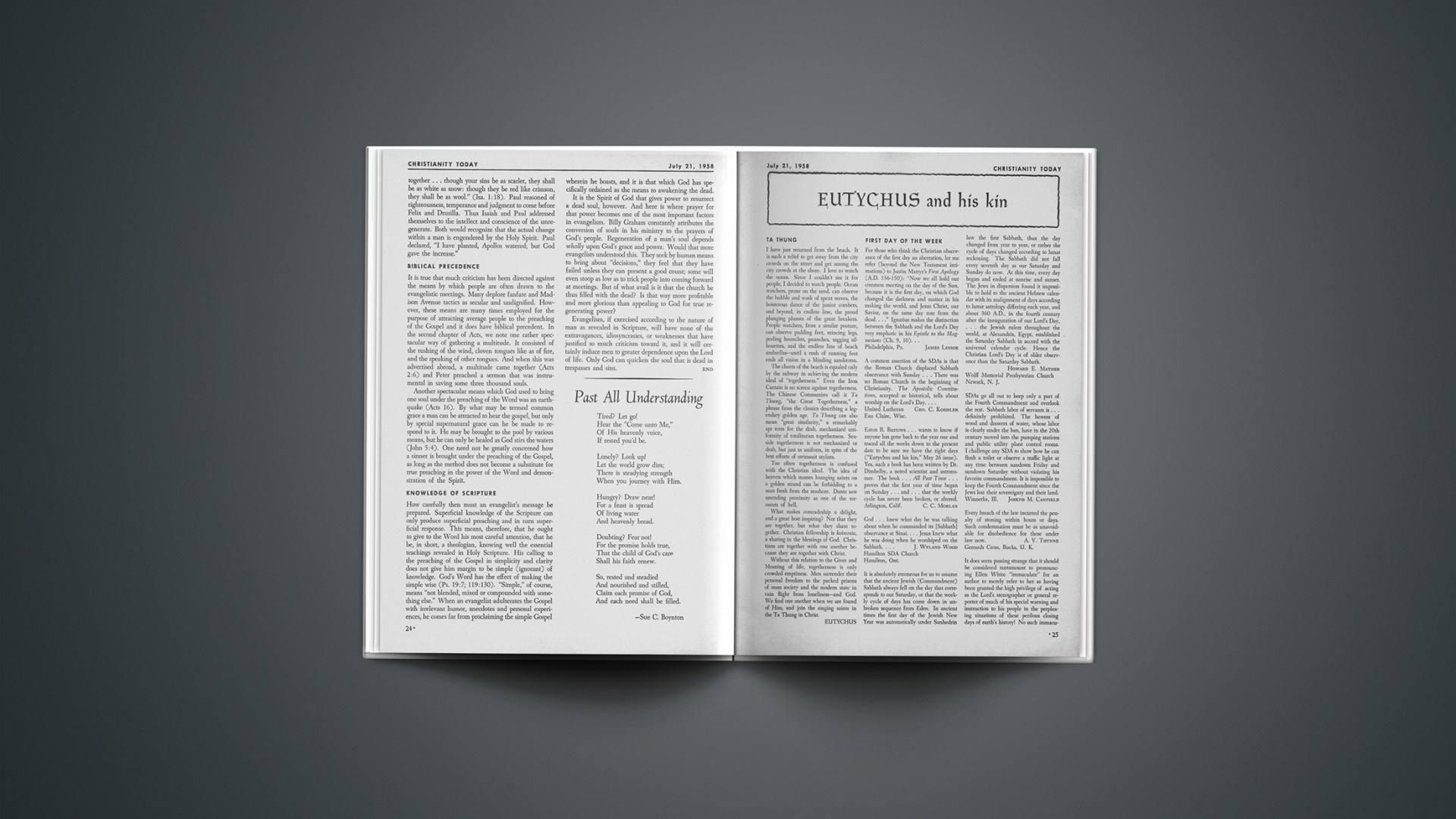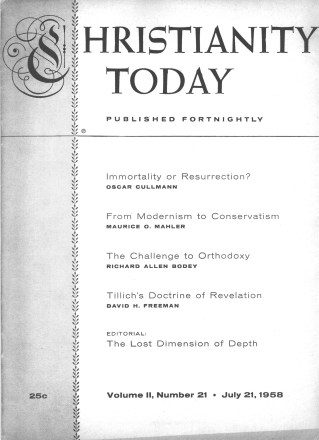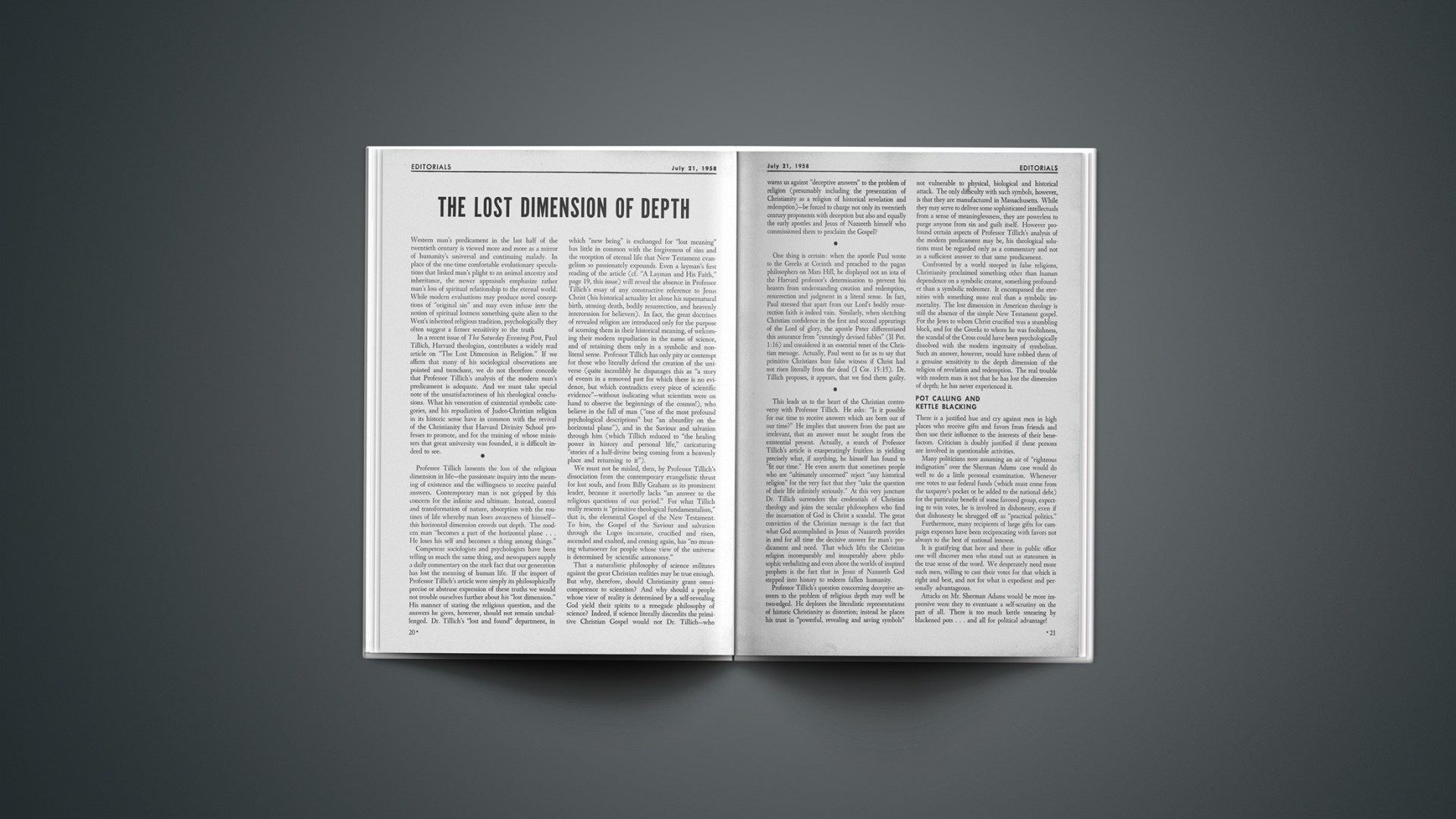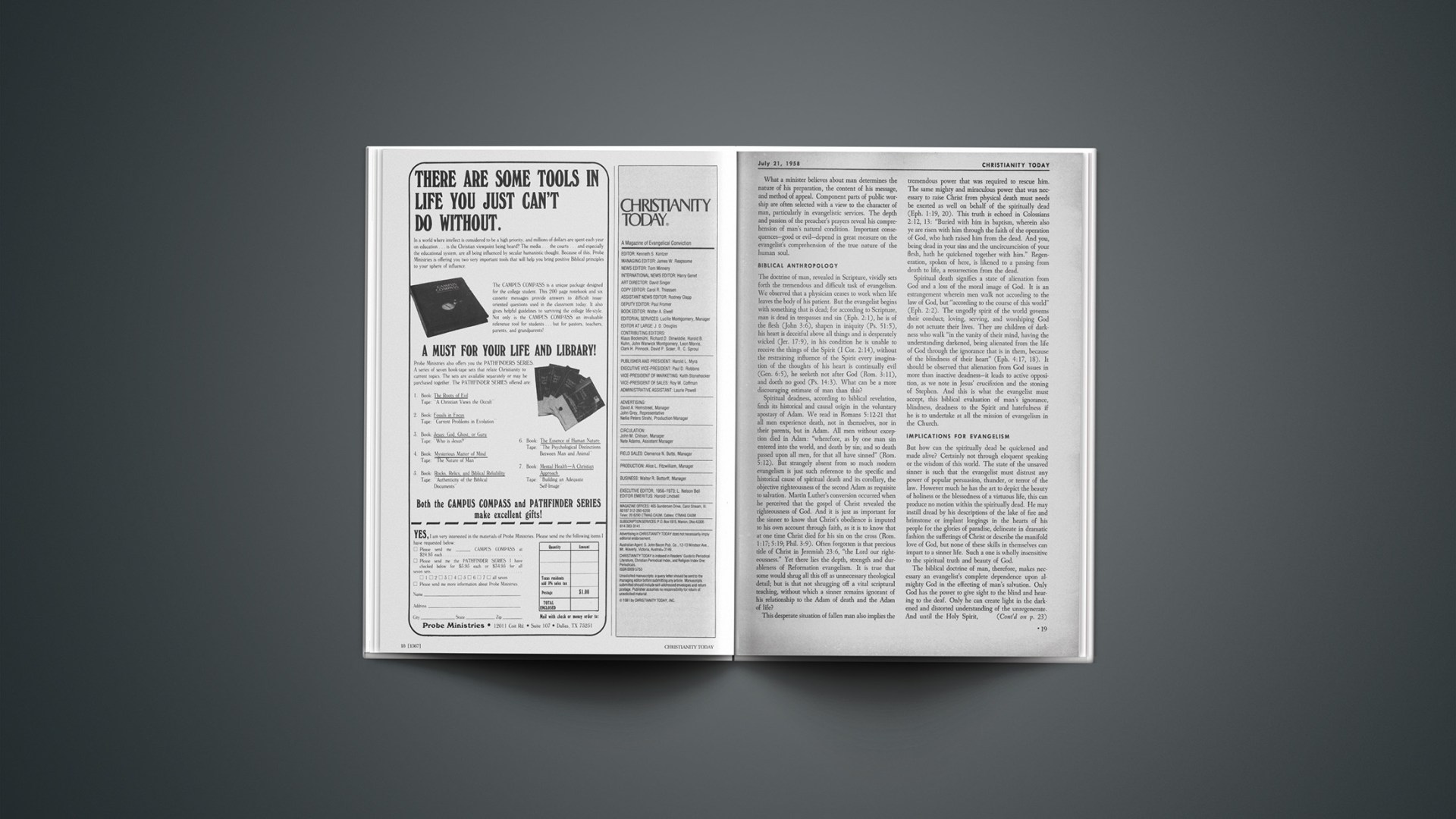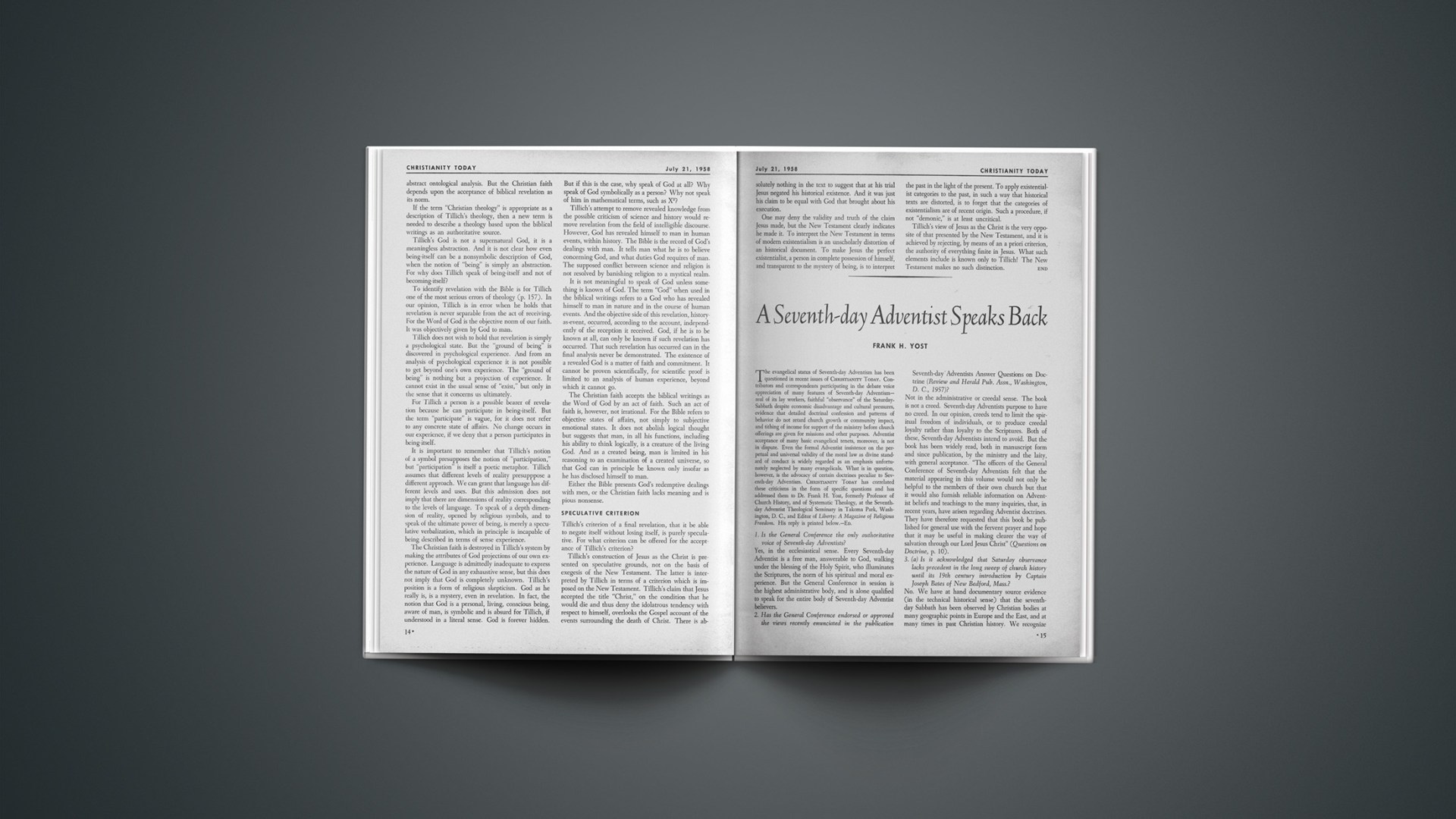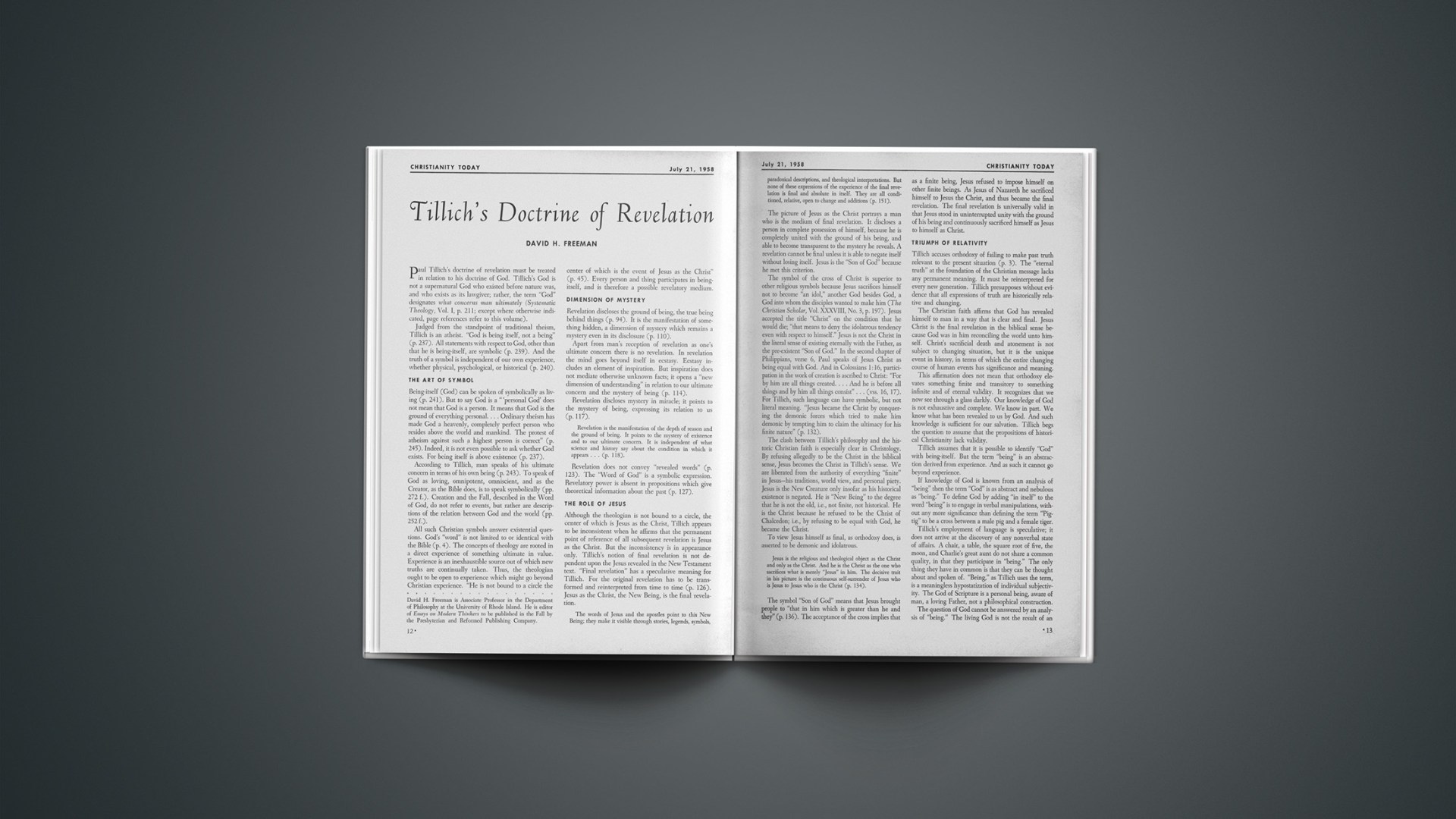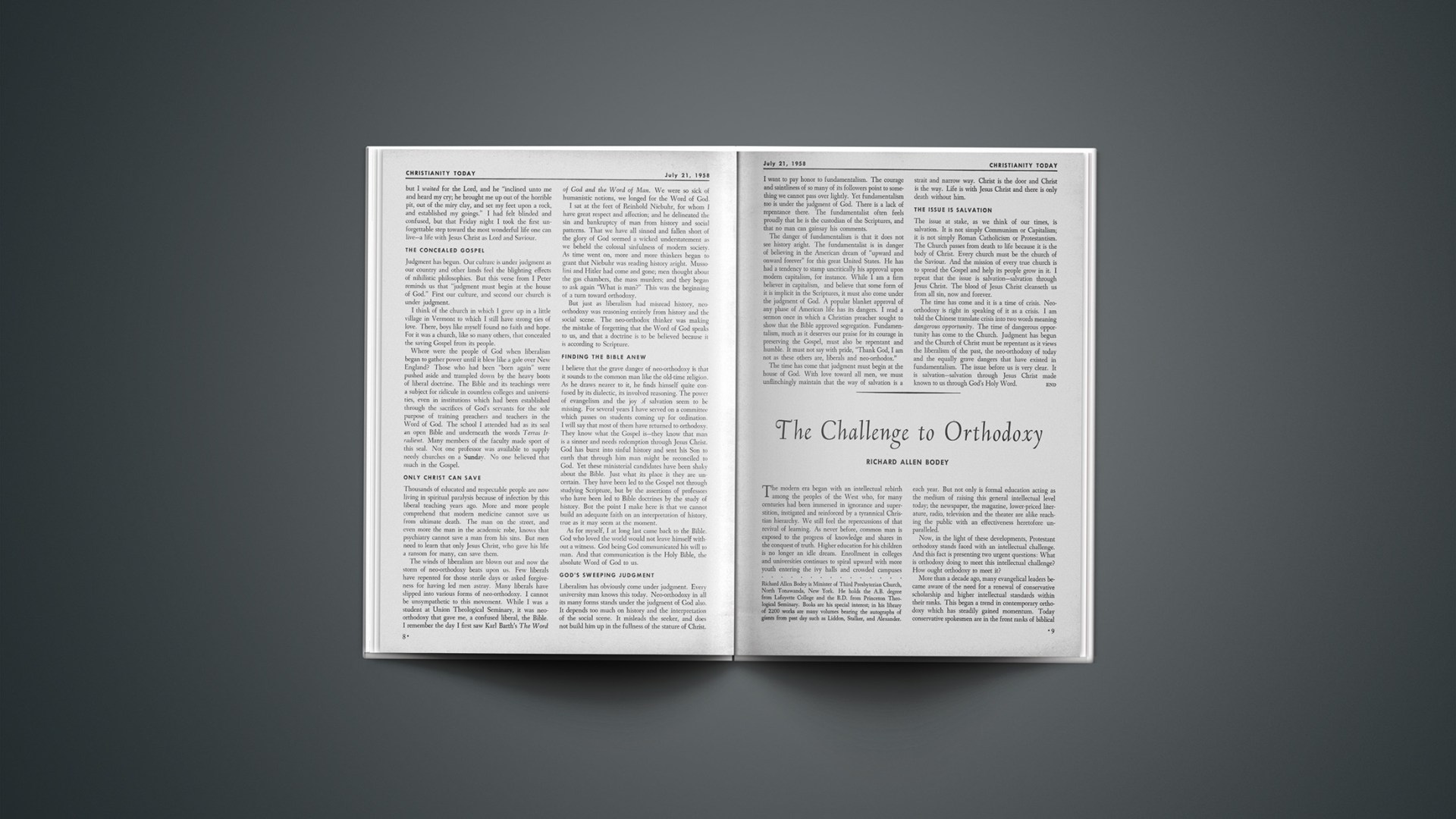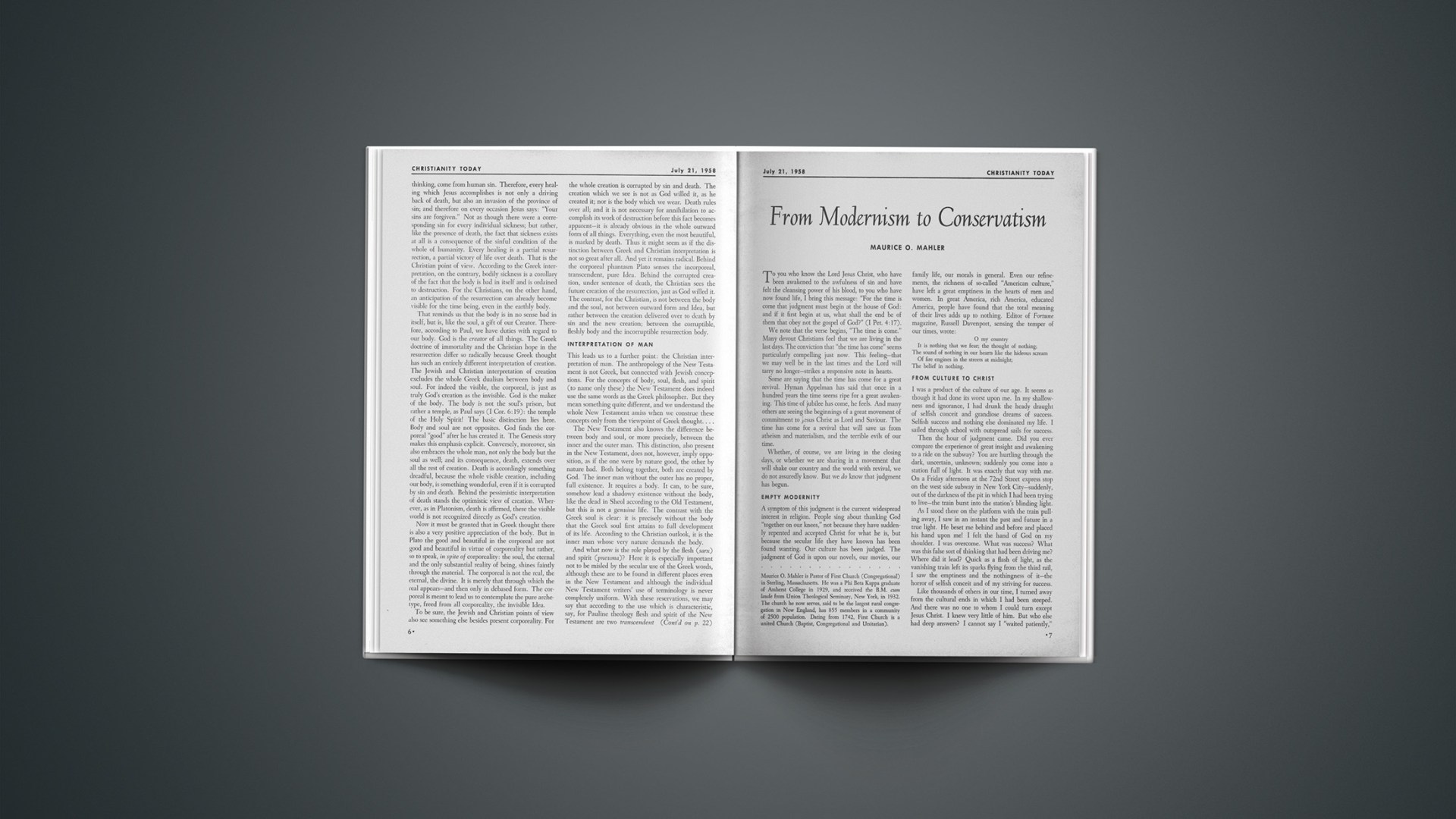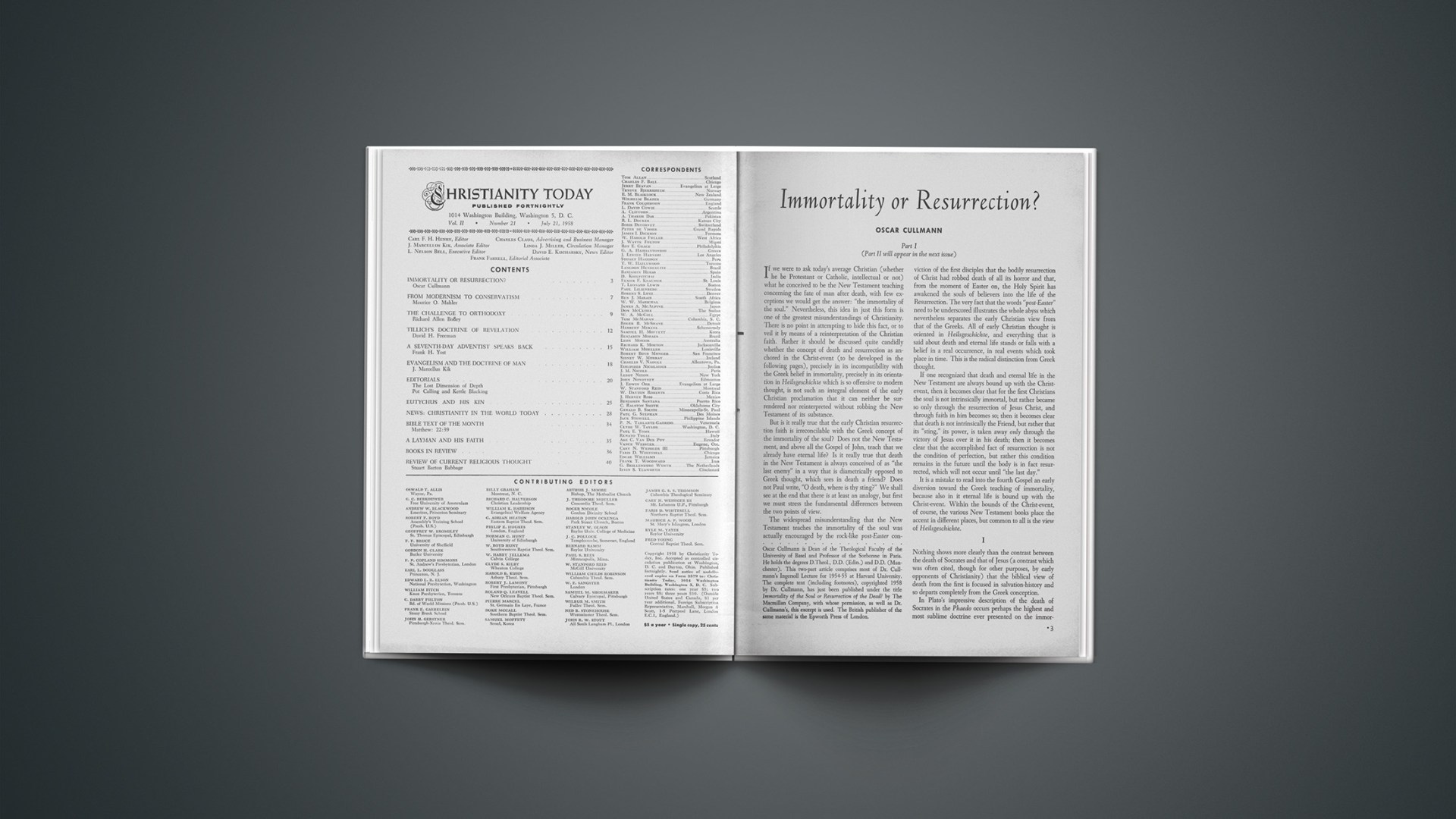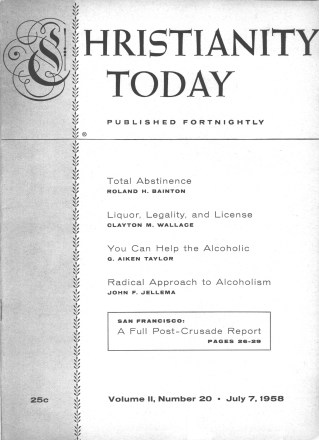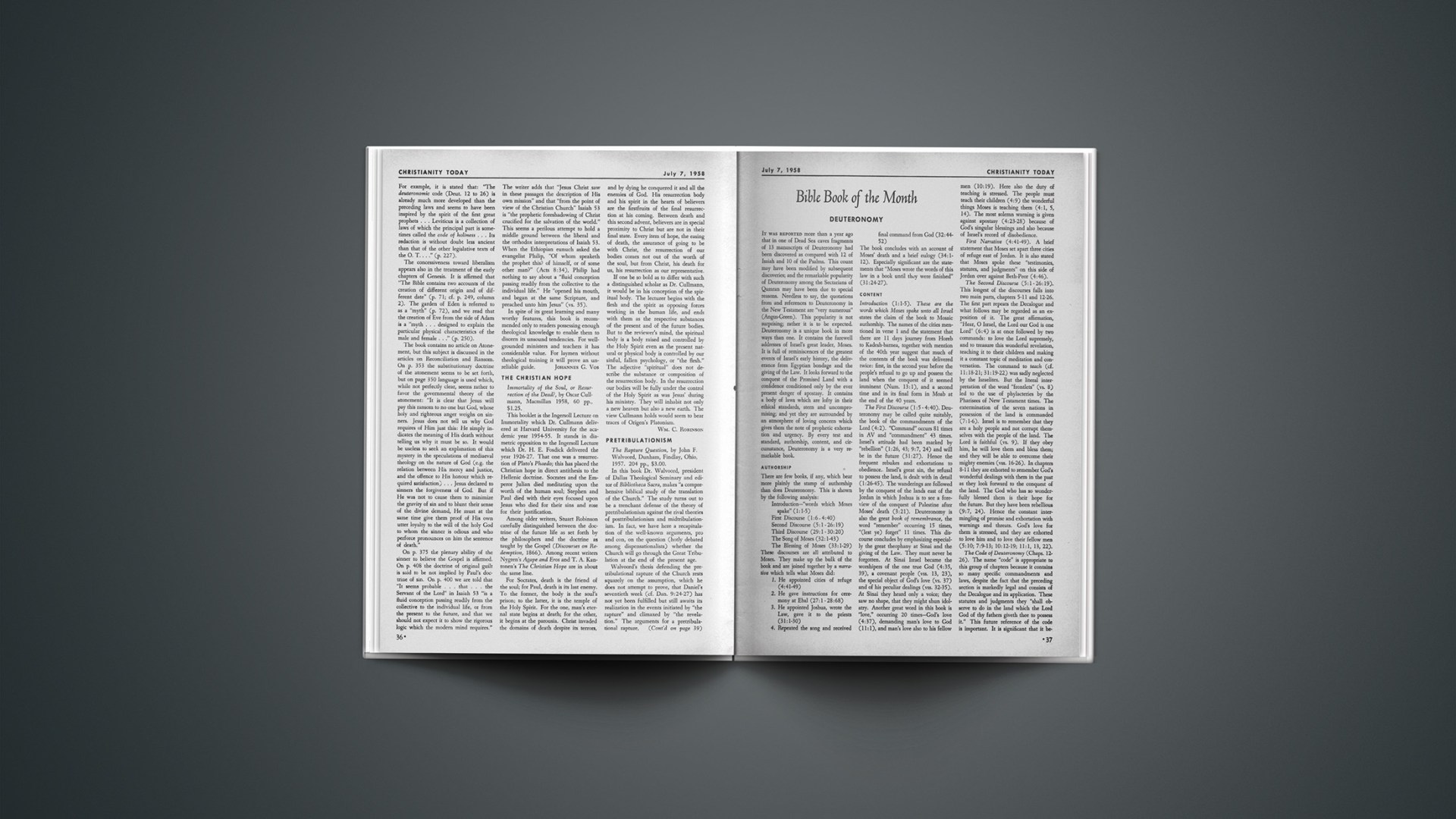TA THUNG
I have just returned from the beach. It is such a relief to get away from the city crowds on the street and get among the city crowds at the shore. I love to watch the ocean. Since I couldn’t see it for people, I decided to watch people. Ocean watchers, prone on the sand, can observe the bubble and wash of spent waves, the boisterous dance of the junior combers, and beyond, in endless line, the proud plunging plumes of the great breakers. People watchers, from a similar posture, can observe padding feet, mincing legs, peeling haunches, paunches, sagging silhouettes, and the endless line of beach umbrellas—until a rush of running feet ends all vision in a blinding sandstorm.
The charm of the beach is equaled only by the subway in achieving the modern ideal of “togetherness.” Even the Iron Curtain is no screen against togetherness. The Chinese Communists call it Ta Thung, “the Great Togetherness,” a phrase from the classics describing a legendary golden age. Ta Thung can also mean “great similarity,” a remarkably apt term for the drab, mechanized uniformity of totalitarian togetherness. Seaside togetherness is not mechanized or drab, but just as uniform, in spite of the best efforts of swimsuit stylists.
Too often togetherness is confused with the Christian ideal. The idea of heaven which masses lounging saints on a golden strand can be forbidding to a man fresh from the seashore. Dante saw unending proximity as one of the torments of hell.
What makes comradeship a delight, and a great host inspiring? Not that they are together, but what they share together. Christian fellowship is koinonia, a sharing in the blessings of God. Christians are together with one another because they are together with Christ.
Without this relation to the Giver and Meaning of life, togetherness is only crowded emptiness. Men surrender their personal freedom to the packed prisons of mass society and the modern state in vain flight from loneliness—and God. We find one another when we are found of Him, and join the singing saints in the Ta Thung in Christ.
EUTYCHUS
FIRST DAY OF THE WEEK
For those who think the Christian observance of the first day an aberration, let me refer (beyond the New Testament intimations) to Justin Martyr’s First Apology (A.D. 136–150): “Now we all hold our common meeting on the day of the Sun, because it is the first day, on which God changed the darkness and matter in his making the world, and Jesus Christ, our Savior, on the same day rose from the dead.…” Ignatius makes the distinction between the Sabbath and the Lord’s Day very emphatic in his Epistle to the Magnesians (Ch. 9, 10).…
Philadelphia, Pa.
A common assertion of the SDAs is that the Roman Church displaced Sabbath observance with Sunday … There was no Roman Church in the begininng of Christianity. The Apostolic Constitutions, accepted as historical, tells about worship on the Lord’s Day.…
United Lutheran
Eau Claire, Wisc.
Eaton R. Burrows … wants to know if anyone has gone back to the year one and traced all the weeks down to the present date to be sure we have the right days (“Eutychus and his kin,” May 26 issue). Yes, such a book has been written by Dr. Dimbelby, a noted scientist and astronomer. The book … All Past Time … proves that the first year of time began on Sunday … and … that the weekly cycle has never been broken, or altered.
Arlington, Calif.
God … knew what day he was talking about when he commanded its [Sabbath] observance at Sinai.… Jesus knew what he was doing when he worshiped on the Sabbath.…
Hamilton SDA Church
Hamilton, Ont.
It is absolutely erroneous for us to assume that the ancient Jewish (Commandment) Sabbath always fell on the day that corresponds to our Saturday, or that the weekly cycle of days has come down in unbroken sequence from Eden. In ancient times the first day of the Jewish New Year was automatically under Sanhedrin law the first Sabbath, thus the day changed from year to year, or rather the cycle of days changed according to lunar reckoning. The Sabbath did not fall every seventh day as our Saturday and Sunday do now. At this time, every day began and ended at sunrise and sunset. The Jews in dispersion found it impossible to hold to the ancient Hebrew calendar with its realignment of days according to lunar astrology differing each year, and about 360 A.D., in the fourth century after the inauguration of our Lord’s Day, … the Jewish rulers throughout the world, at Alexandria, Egypt, established the Saturday Sabbath in accord with the universal calendar cycle. Hence the Christian Lord’s Day is of older observance than the Saturday Sabbath.
Wolff Memorial Presbyterian Church
Newark, N. J.
SDAs go all out to keep only a part of the Fourth Commandment and overlook the rest. Sabbath labor of servants is … definitely prohibited. The hewers of wood and drawers of water, whose labor is clearly under the ban, have in the 20th century moved into the pumping stations and public utility plant control rooms. I challenge any SDA to show how he can flush a toilet or observe a traffic light at any time between sundown Friday and sundown Saturday without violating his favorite commandment. It is impossible to keep the Fourth Commandment since the Jews lost their sovereignty and their land.
Winnetka, Ill.
Every breach of the law incurred the penalty of stoning within hours or days. Such condemnation must be as unavoidable for disobedience for those under law now.
Gerrards Cross, Bucks, U. K.
It does seem passing strange that it should be considered tantamount to pronouncing Ellen White “immaculate” for an author to merely refer to her as having been granted the high privilege of acting as the Lord’s stenographer or general reporter of much of his special warning and instruction to his people in the perplexing situations of these perilous closing days of earth’s history! No such immaculance has ever been generally assumed for Isaiah, Jeremiah or John.
Beacon Light Mission
Minneapolis, Minn.
It is interesting to note in Revelation 19:8, RSV, in speaking of the bride, John says, “It was granted her to be clothed with fine linen, bright and pure, for the fine linen is the righteous deeds of the saints.” Could it be the Adventists have a right to have at least “one stitch … of [their] own making” … in their celestial robes?
San Gabriel, Calif.
Before me is one of their [SDA] decision cards.… “My decision. Jesus, I come to thee. Recognizing that the seventh day of the week, the Sabbath, is the day of the Lord, I promise with the help of God, to observe it as His holy day and obey all the rest of the holy commandments.”
In Uberlandia [Brazil] this group managed to seduce one family from the Presbyterian church and half a dozen from the Methodist. We “gladly” say goodbye to those who find the fellowship in another evangelical church more to their liking. I am no strong sectarian. However, it is distressing to see a group infiltrate and slander and use all manner of deceit to win adherents, and do it in the name of Christ.
PAUL J. COBLENTZ
W. Brazil Mission, Presby. Church, U.S.
Paracatu, Minas Gerais, Brazil.
Thanks for articles on church unity (May 26 issue). These should stop controversy on SDA. “External union is the product and expression of internal (spiritual) unity.” Both my Christian love and my business have caused me to try hard for fellowship with SDAs, but it is very difficult (impossible in a true spirit of fellowship).
Marquette, Mich.
Having once been an Adventist myself, and under the delusion of such doctrines as their “sanctuary doctrine,” and their investigative judgment theory, and having finally realized that those teachings are out of harmony with the Word of God, I left them voluntarily … and sought fellowship with other Sabbatarian Groups.… All of us connected with … The Gathering Call … magazine … were formerly Adventists. We felt the call to try to help our former brethren see through some of their delusions.
Asst. Ed. and Mgr.
The Gathering Call
Riverside, Calif.
ETERNALLY SEEKING
Dr. Wilbur Smith’s … review of Bishop Oxnam’s … A Testament of Faith (June 9 issue) reveals a most interesting analogy. Bishop Oxnam extends his thinking beyond Biblical precision. Dr. Smith conforms to the most rigid … interpretation. The point … involves freedom of thought in a theological field of infinite interpretation.… Bishop Oxnam may not be right in his own conclusions on major theological issues—but his spirit is absolutely right because it is broad enough to be stimulating and eternally seeking.
Shelton, Conn.
It is nothing unusual for a Methodist bishop to hold several high positions at once.… In his one-year position as president of the Council of Bishops, Bishop Oxnam is not the voice of Methodism. He can speak for the bishops only when they authorize him to do so. He can speak for Methodism only when he follows the Discipline, concerning which the Judicial Council is the court of final appeals, and not the Council of Bishops. Anything else that he may say or write is private opinion. Wherein the Bishop’s theology does not follow the Discipline, which follows the Scripture, it is regrettable. However, as Dr. Smith’s own Presbyterian Church officially teaches the questionable doctrines of limited atonement, perseverance of the saints, and unconditional election—all as unscriptural and repellent to many orthodox Christians as the worst errors imputed to Oxnam—the reviewer is singularly unsuited to throw stones.
First Methodist Church
Belen, N. M.
Such statements as, “Someday the Bishop will know, before the judgment seat of Christ, what Christ thinks of ‘theological discussions,’ ” leave very little to the imagination.… Thank God that he alone makes judgments as to who is right and who is wrong, for I feel that if either Wilbur Smith or Bromley Oxnam were to establish the criteria for salvation many areas of Christendom would be doomed to eternal damnation.
Aldersgate Methodist Church
Wilmington, Del.
May I remind Wilbur M. Smith that Billy Graham has also said any number of times that he is not a theologian. Considering Graham was president of a Bible school why should Smith be so alarmed at our intrepid Bishop Oxnam’s admission that he is no theologian. Without having read Oxnam’s “A Testament of Faith,” I would suppose it is at least as theologically sound as “Peace with God,” which I have read.
First Methodist Church
Sebring, Ohio
I deeply appreciate the fine … reviews that you have published … of books by Fosdick and Oxnam.
Evart, Mich.
In the … fine … review Dr. Smith mentions that Dr. Oxnam is “the president of the Board of Trustees of Westminster Theological Seminary.” … This is a Methodist seminary, now located at Westminster, Maryland. This institution is moving to Washington, D. C., this fall and is changing its name to Wesley Theological Seminary. Bishop Oxnam has never had the remotest connection of any sort with Westminster Theological Seminary in Philadelphia. His theological positions are, of course, abhorrent to us.
Exec. Sec.
Westminster Theol. Sem.
Philadelphia, Pa.
SOUTHERN BAPTISTS
From the bottom of my heart I want to thank you for the splendid report of the Southern Baptist Convention (June 9 issue).… We Southern Baptists make lots of mistakes but we do sincerely love the Lord and want to win people to him. Your report seems to me to catch the spirit of our convention better than any other I have seen.
Editor
Baptist Messenger
Oklahoma City, Okla.
Thank you for your helpful interpretation and … your genuine concern in the field of religious news. In a day when material things can be blown to bits in seconds and the dimensions of time and space have lost much of their significance, there is a hunger on the part of people for spiritual values which sustain in times of crisis. We feel that you perform a real service in taking note of these values and their significance in modern society.
Exec. Sec.
Executive Committee
Southern Baptist Convention
Nashville, Tenn.
Thank you for your splendid story.… I thought this a most constructive and enlightening piece.
Executive Com.
Southern Baptist Convention
Nashville, Tenn.
COMMUNITY ETHICS
In reference to the … comment on gambling in … “Current Religious Thought” (May 26 issue) … it is high time Christians, both laymen and ministers, raise their voices against the deplorable conditions found in many of our communities. In our area gambling is wide open along with its accompanying vices. The county officials were approached by a local ministerial group concerning the matter and were told that because of the widespread corruption in both local and county authorities, nothing could be done. Some of our communities are so full of this vice, seemingly protected rather than halted by law officers, that a good Christian parent dreads the day that his children will become of age. No good Christian desires to bring his children up in a community where every good ethic taught in the home is denied and made light of by the deplorable ethics of his community.
Salem Evangelical Congregational
Church, Mahanoy City, Pa.
CULTURE IN THE BASEMENT
What a beautiful, touching, and unusual activity is beautifully described … by Robert K. Churchill (June 9 issue).
Didcot, Berks, U. K.
INSOLUBLE DILEMMA
I was very much interested to see your note concerning the discussion now going on at Harvard (May 12 issue). It seems to me that the function of a university is to teach and not attempt to fulfill the role of a church. If the university does its job well, whether its administrators are Christians or otherwise, they will include courses, competently taught, in the Christian religion. But when the university plays church, it asks for trouble. Exhibit “A”: the ultimately insoluble dilemma of the Jewish couple’s request. The only answer is an uneasy and transparent compromise on both sides. You can no more mix church and university than church and state. The university has no just claim to return to anything but President Eliot’s “minimum,” pathetic as it may be to the theologian.
Lutheran Student-Work Committee
Philadelphia, Pa.
PREACHING TO THE TIMES
William H. Beckmann (May 26 issue) … should read again the prophecy of Isaiah, or Jeremiah, or Amos. In ancient days the presbyteries in the church in Scotland inquired of its ministerial members whether they had “preached to the times.” Why not the same inquiry today.
Lisbon, N. Y.
CHURCH OR CHAPEL
Your paper seems to include … every denomination … as a “Church” … There is nothing to stop people … breaking away from the original Church and calling themselves the “new church” … but that will never make them a “Church”—possibly a “chapel” which is the correct name for present-day sects.
Church of England
Stow Bedon, Norfolk
CHRISTIANITY TODAY … seems to be written, chiefly, by nonconformist ministers outside the Church who have no authority to teach, and obviously do not know the faith, since they elect to remain outside the Church.
Dean Prior Vicarage
Buckfastleigh, Devon
I have left my parish in Suffolk, and the Church of England, and have become a Roman Catholic.… I feel I must write to express my appreciation of this periodical and my admiration of the very important principles it stands for—for instance, the authority of Holy Scripture and the original teaching of the Church on the Person of Christ. Besides this, I remain a firm supporter of Dr. Billy Graham because of his magnificent presentation of these fundamental truths of our religion.
Ipswich, England
May I say that I consider CHRISTIANITY TODAY the finest piece of Christian literature being published at the present time. One may not perhaps agree 100% with everything written, that would not be possible; but in no other publication of its kind, known to me, is there to be found such a wealth of sound doctrine, learned exposition and interesting and valuable information.
The Vicarage
Frome, Somerset
I warmly appreciate the substantial and dynamic quality of its many articles, with their clear and positive presentation of the original faith and practice. This is in strong contrast with most British theological journals, which for the work-a-day minister are too often merely technical and vague. In an age of theological dilution it is vastly encouraging to find that there are still so many first-class minds, with the necessary scholastic equipment, who maintain and articulate the original simplicities of the Word of God, and their relevance to these modern times. I pray that wherever it is sent it will challenge the superficiality of prevailing liberalism, and have a tonic effect upon the thinking of those who stand by a genuine scriptural Christianity.
Methodist Supt. Minister
Castle town, Isle of Man, U. K.
READER TO READER
How anyone can take the stand of H. D. Sanders (Apr. 28 issue) and live with himself is beyond comprehension.… Idol worship never produces sane reasoning. We are persuaded that the great American idol today is the naked human female form!
United Presbyterian
Franklinville, N. Y.
There are some like A. A. Cone … who … see what is facing us.… I am acquainted with a man who is a converted Roman Catholic who can mention time after time when the Catholic church and her puppet priests and people have made attempts on his life but have not as yet succeeded.… When seven-year-old boys are threatened with excommunication because they take a Gospel of John from a Protestant minister, what is that but slavery.…
Writers use the term … “Adventism” as though it refers only to SDA. I am of the Advent Christian … denomination which is a completely evangelical group.…
Advent Christian
Crouseville, Me.
With reference to Mr. H. Hawkin’s remarks (Apr. 28 issue) … to present Jesus on the cross would mean that he did not “resurrexit.” I might understand the symbol of the Cross but not the crucifix.
South Boston, Mass.
Mr. L. H. Saunders … in a letter (Apr. 28 issue) … objects to the term “born-again Christian” … However, the term “Christian” in many circles, has come to be a synonym for “Gentile”.… Though the terminology is redundant, nonetheless it is often needed and may … afford an opportunity to witness to … saving grace.…
Tucson, Ariz.

